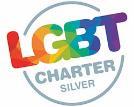Ethnicity
It’s illegal for an employer to discriminate against you because of your ethnicity. This includes any form of harassment or victimisation on the basis of your race.
Useful resources and schemes for ethnic minority students:
- The Windsor fellowship – career development programmes for ethnic minorities.
- Rare Recruitment – a diversity focused recruitment agency.
- Sponsors for Educational Opportunity (SEO London) – targeted internships and career preparation.
- Targetjobs – Race: diversity matters
- Finding race-positive employers
- Disclosing your race when marketing yourself to employers
- Your rights around racism

